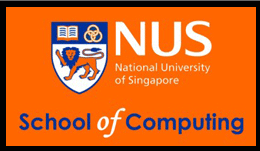

About Us
 |
Our research philosophy is to do problem-driven research in multimedia systems which explore the development of novel algorithms and techniques. There are two main themes of our research work: content-based multimedia information processing and multimedia information security. Both are systems research areas which have fundamental conceptual issues arising out of real-world problems. So their flavor is a blend of both basic and applied research. |
In the short term, this research will have a major impact on many areas such as consumer electronics, web-based services, social media, video surveillance and media security & privacy. The long-term impact will be on the advancement of the state of understanding of sensory information processing.
The long-term research foci are as follows:
-
To employ rigorous mathematical techniques for multimedia content processing. The eventual goal is to contribute to the theoretical foundations of multimedia systems.
-
To develop adaptive techniques based on control-theoretic and decision-theoretic foundations to build autonomous multimedia systems. This is the foundational work for cyber-physical systems.
-
To study the interplay of economics and finance with computer science with respect to the problems of multimedia fusion, multimedia surveillance, and computational advertisement.
-
To investigate the phenomenon of saliency and attention in order to build better multimedia systems.
-
To explore the interaction of media and sensors in social networks.
-
To explore fully the area of computational media aesthetics by employing ideas from cinema theory and music theory into signal processing.
-
To explore issues and problems arising out of future digital television system as well as the proliferation of digital media capture devices. This considers capture, analysis, synthesis and re-purposing of user-generated content especially by amateur home users.
-
To explore the many unobvious links between cryptography and multimedia to build secure multimedia systems.
-
To research into preserving security and privacy properties of media against format transcoding as well as cross-modal interactions.
-
To develop effective techniques for digital management of rights for multimedia content including images, video, audio and electronic documents.
Copyright © 2012 Multimedia Analysis and Synthesis Lab